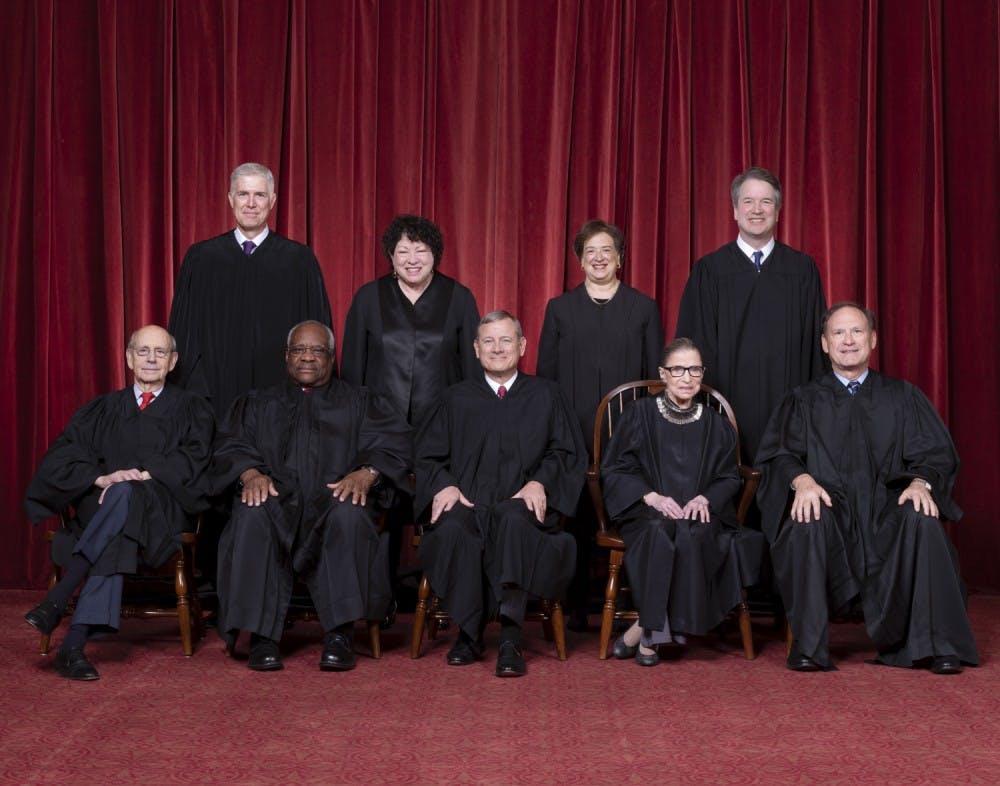In the landmark 1973 ruling Roe v. Wade, the Supreme Court of the United States legalized abortion in all 50 states. Prior to the ruling, as many as 1.2 million unsafe abortions took place each year, and 17 percent of deaths during pregnancy were attributed to such procedures — and that’s only what was reported, the real statistics were likely much higher. Almost immediately after Roe, the number of unsafe abortions plummetted as women were able to access safe and legal abortion services. No longer did women have to travel hundreds of miles and pay thousands of dollars to have abortions in unsanitary conditions from medically unlicensed — and often sexually predatory — physicians. Roe was, and still is, a major victory in the fight for gender equity in the United States, but its clock is ticking.
From practically the day after Roe was decided, pro-lifers have been hellbent on destroying it. The pro-life movement — which actually finds its roots in pro-segregation activism — challenged the precedent in any way possible as white evangelicals became an increasingly important voting block in wider American politics.
In 1992, the Supreme Court handed down a ruling in Planned Parenthood v. Casey and walked back its original abortion precendent. The Court began applying the undue burden standard, arguing abortion restrictions were constitutional so long as they did not pose a substantial obstacle in the path of a woman’s choice. This intentionally vague and ill-defined standard allowed states to legislate abortion restrictions aimed at rolling back Roe, all under the guise of patient safety.
In recent years, states have continued to place restrictions on abortion providers at an ever-increasing rate. Known as targeted restrictions on abortion providers or TRAP laws, they often manifest as cruel, unusual and medically unnecessary barriers to care. Many states, including Virginia, require patients to receive an ultrasound and counseling services at least 24 hours prior to their abortion. In many of the same states, abortion providers are required to read medically inaccurate scripts written by state legislators — not doctors — to patients. The scripts are filled with lies. They often claim abortion increases the risk of breast cancer, causes suicidal thoughts, PTSD or can result in irreversible complications and death. In reality, abortions are safer than wisdom teeth removal.
Other states have focused on clinic buildings by passing retroactive building codes for dimensions of hallways and supply closets. Such restrictions have forced the closure of dozens of clinics across the country, eliminating access to care for millions of women. And most recently, states have begun an all-out assault on abortion by legislating outright bans as early as six weeks into pregnancy, before most women even know they’re pregnant. In the last year, 29 bans have been introduced in state legislatures and seven states have passed them. Six of the seven bans have been blocked in court, and the remaining ban is facing a lawsuit from the American Civil Liberties Union and Planned Parenthood. But the pro-life movement won’t let court injunctions stop them. They don’t care about scientific evidence or access to safe healthcare, they care about making abortions almost impossible to access at the detriment to women across the country.
With these increasingly harsh restrictions, we’re reaching the end of the line. Earlier this fall, the Supreme Court announced it would consider June Medical Services LLC v. Gee — a case concerning the constitutionality of Louisiana’s TRAP laws. The announcement comes less than four years after TRAP laws in Texas were ruled unconstitutional in Whole Woman's Health v. Hellerstedt. While that case made it through with a 5-3 ruling, the Court landscape has shifted significantly since then. With Justice Anthony Kennedy — often seen as the moderate swing vote — now retired and Justices Neil Gorush and Brett Kavanaugh now seated, we cannot count on the same outcome this time around. If the Court sustains Louisiana’s TRAP laws, access to abortion will become virtually impossible in much of the country practically overnight. States empowered by the Court’s new anti-choice precedent will set out to legislature the harshest abortion restrictions in history, and women will suffer as a result.
While the Court will likely uphold Roe in name, it would be absolutely gutted in a stunning disregard for the safety and autonomy of women. The very existence of abortion providers, many already weakened by the elimination of their Title X funding, would be threatened if not totally doomed. Decades of progress toward gender equity would be thrown out the window. The United States would be catapulted back to the 1950s and 60s — when a network of clergy members covertly connected women to abortion providers abroad, when police raided doctors offices for patient records and when women were imprisoned for conspiracy to commit murder when traveling across state lines to have abortions. We will not, and we cannot go back.
Noah Strike is a Viewpoint Writer for The Cavalier Daily. He can be reached at opinion@cavalierdaily.com.





